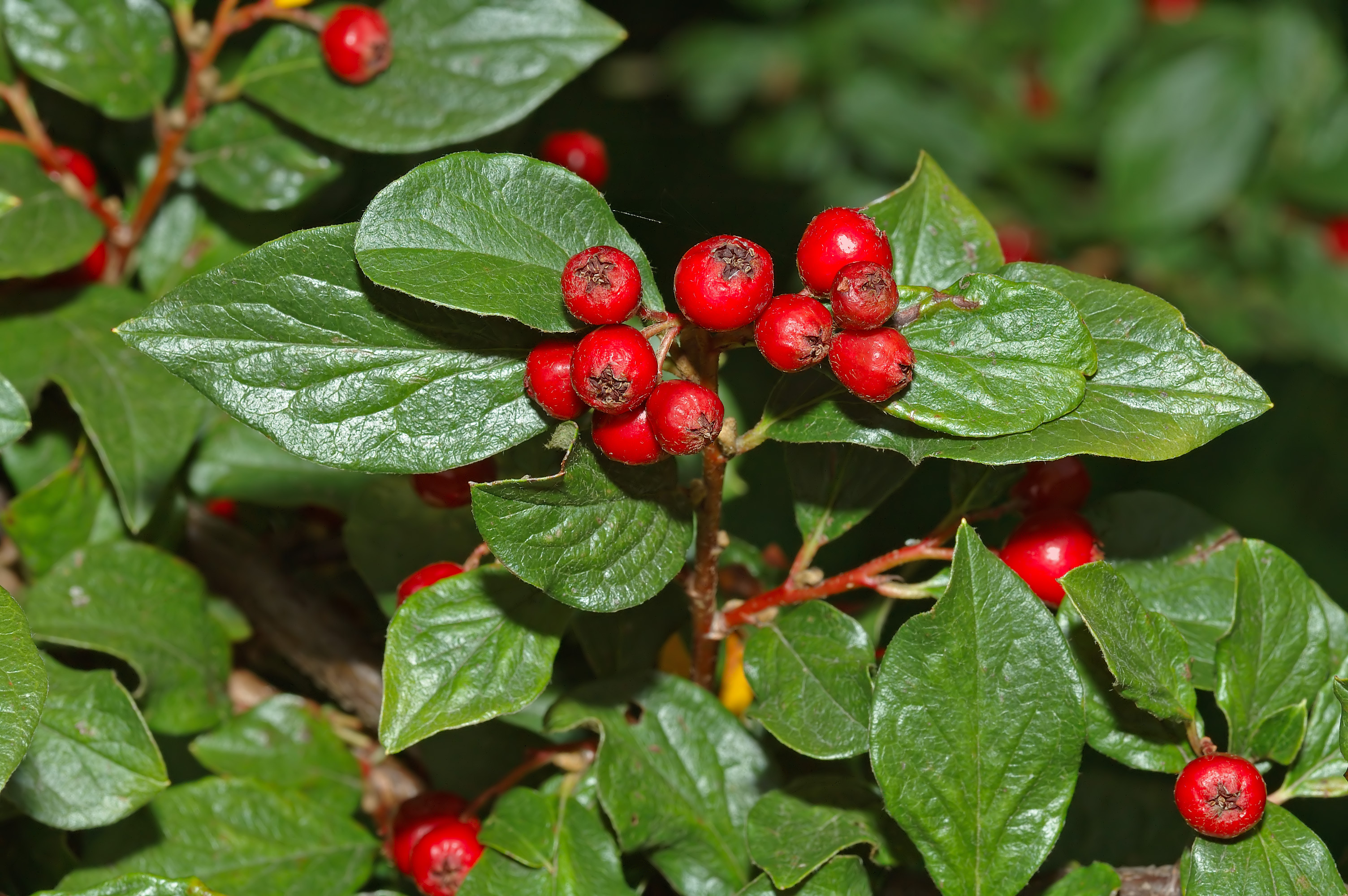
Following my post accumulating all my gardening words, a Wordlady reader has written to inquire about COTONEASTER, a quite popular shrub. She became acquainted with the written word before hearing it spoken (a problem shared with the people in this post), and so thought it was pronounced "Cotton Easter". I must admit I shared that misapprehension with her for a long time. (Be honest, now, how did you hear the title of this blog post in your head when you saw it?)
In fact it is "kuh tony ASS ter".
Its name comes from modern botanical Latin cotonea (quince) + the suffix -aster, essentially the Latin equivalent of "-ish". So a cotoneaster is a plant that is "quince-ish", kinda like a quince:
The flower called an "aster" tout court gets its name from another word, the Latin and Greek word for "star", aster. As you can see in this photo, it is an appropriate name.
Fortunately, botanists have resisted the urge to name an aster-ish flower an "asteraster".
The story of how we got to "quince" is also quite fascinating. The Romans had originally called the fruit a mālum Cydōnium, from mālum (apple) + Cydōnea (the name of the town in Crete now known as Khania). This became classical Latin cotoneum.
As we have seen before (peach), Latin words got squished into something shorter by the French, who usually dropped the ending and the middle consonant. So cotoneum became coin in Old French (a different coin than the one meaning "corner"). In modern French this is spelled coing, just so we English don't have a monopoly on ridiculous silent letters in spelling.
Like many French food words, coin (also spelled quoyne or quyne) was borrowed into Middle English. So why don't we call the fruit a "quin"? Very early on, the plural "coins/quynes" (also spelled "quince") was taken to be the singular. Naturally, we then had to create a new plural, to wit "quinces".
For another surprising word history involving quinces (and cats), click here:
http://katherinebarber.blogspot.ca/2013/06/cat-word-of-month-marmalade.html
Do you enjoy Wordlady? Please share with your friends on social media by clicking on the buttons below.
Upcoming Tea and Wordlady events:
- Canadian English SIGNUP DEADLINE NEXT TUESDAY, JUNE 21.
- Hebrew and Yiddish in English
Fancy a trip to a beautiful Quebecois village to see some great dance? Check out my August trip to the Festival des Arts de Saint-Sauveur:
http://toursenlair.blogspot.ca/2016/06/ballet-trip-to-saint-sauveur-now-booking.html
COMING THIS FALL! My ever-popular Rollicking Story of the English Language course. REGISTRATION NOW OPEN AND SPACE IS LIMITED. More info here: http://katherinebarber.blogspot.ca/p/history-of-english-language-courses.html
P.S.
If you find the English language fascinating, you might enjoy regular
updates about English usage and word origins from Wordlady. Receive
every new post delivered right to your inbox! SUBSCRIPTION IS FREE! You can either:
use
the subscribe window at the top of this page
OR
(if you are reading this on a mobile device): send me an email with the subject line SUBSCRIBE at wordlady.barber@gmail.com
Privacy policy: we will not sell, rent, or give your name or address to anyone. You can unsubscribe at any point.

No comments:
Post a Comment